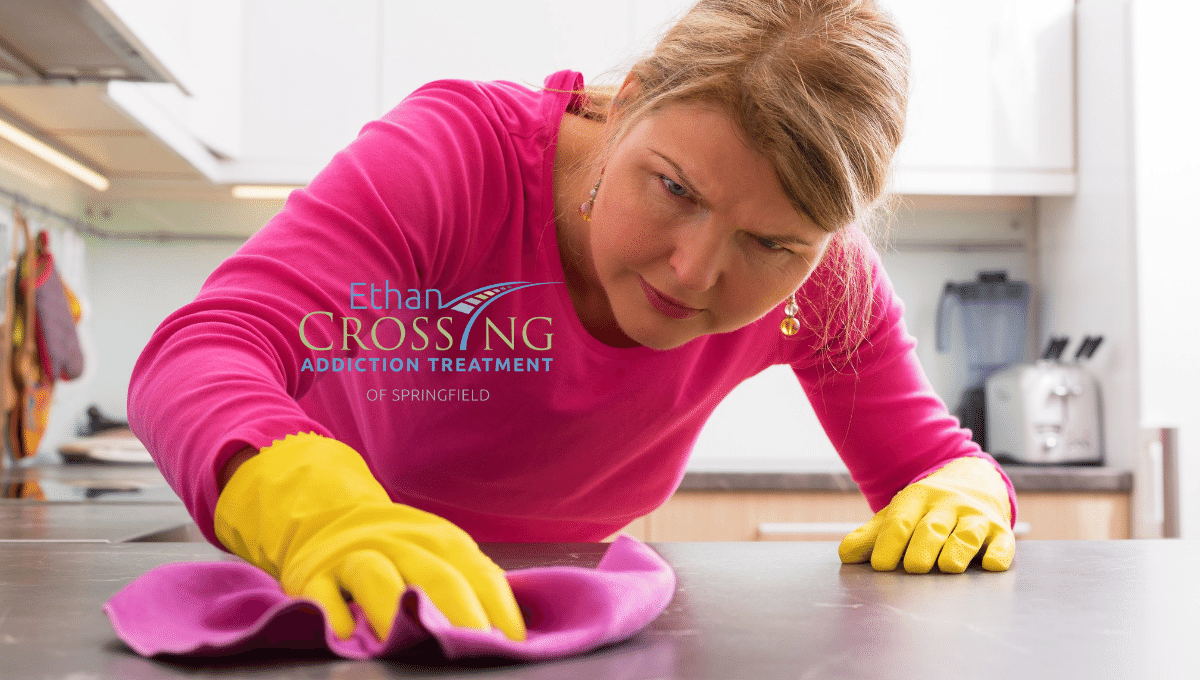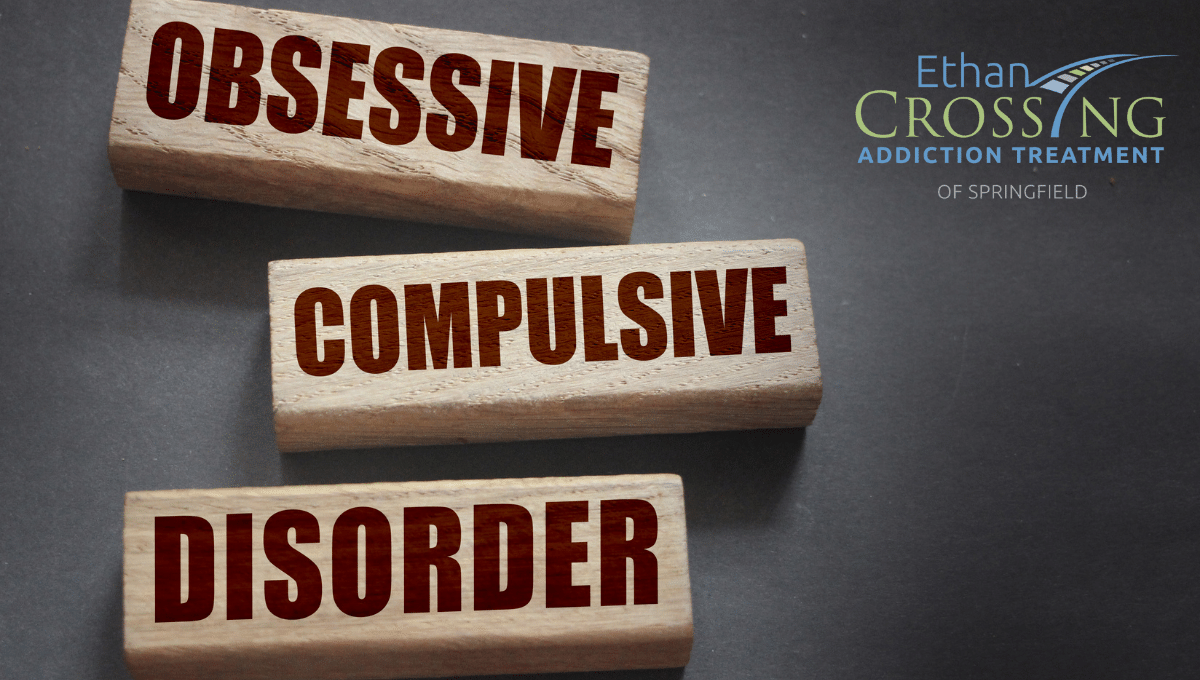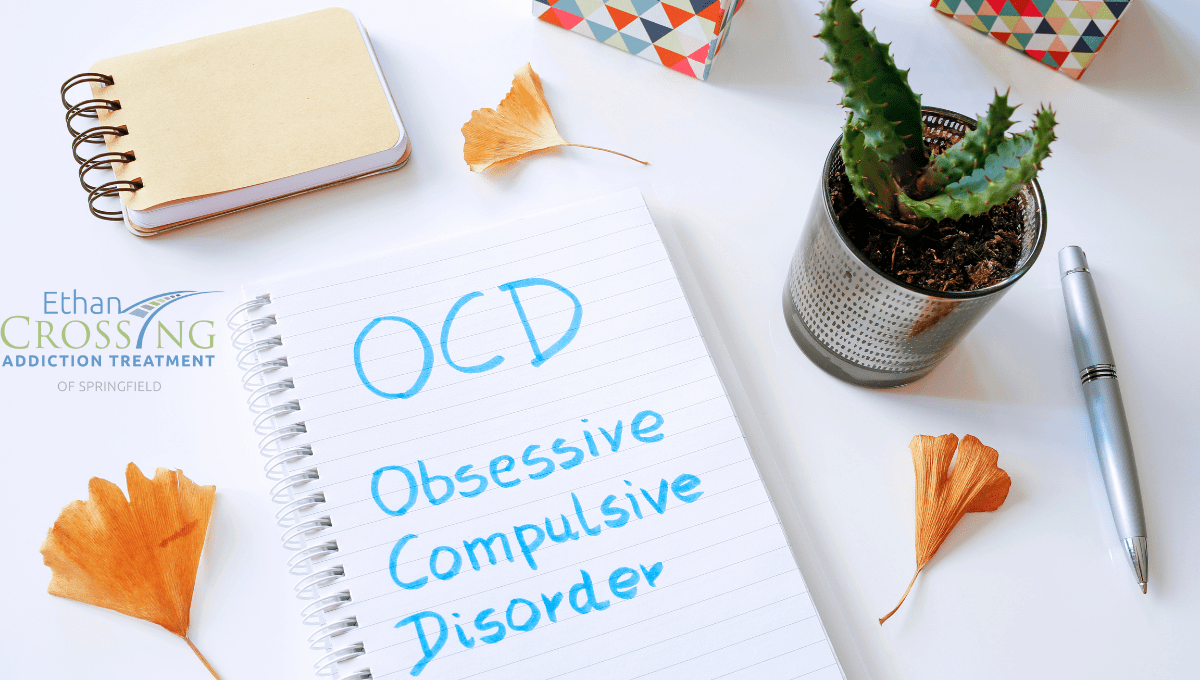Even though OCD is uncommon compared to other related disorders, it may cause severe impairment and significantly impact an individual’s social functioning. OCD has been linked to higher-than-average drug or alcohol addiction rates, which can negatively influence the disorder’s prognosis. Individuals who abuse alcohol or drugs may have more severe symptoms; they’re more prone to engage in self-destructive conduct or be admitted to a hospital.
The combination of obsessive-compulsive disorder (OCD) and drug or alcohol addiction is extremely harmful. OCD patients experience a great deal of anxiety in their daily lives. As a means of coping with stress, many people turn to drugs or alcohol. Because of their alcohol or drug use, OCD is considerably more prone to develop a chemical dependency or addiction.
Table of Contents
What is OCD?
The obsessive-compulsive disorder causes people to do things routinely with little to no control. OCD affects both men and women equally, and around 2% of individuals have it at some point in their life. People sometimes confuse being a perfectionist with having OCD, but the two are incredibly different. OCD is a severe disorder that may negatively impact a person’s job, relationships, and education. OCD is separated into two categories, obsessions and compulsions.
OCD Obsessions:
An idea or thought continually preoccupies or intrudes on a person’s mind. Obsessive thoughts frequently entail a feared result, such as causing harm to oneself or others or being perceived as unethical, immoral, or flawed. Someone with OCD, for example, may become preoccupied with the fear of accidentally hurting someone due to carelessness. The dread may become so intense that it motivates individuals to commit to reducing the perceived risk.
Obsessions that are common in OCD include:
- Excessive concern for exactness – things not facing a specific direction or arranged in a symmetrical or orderly manner.
- Fear of germs or contamination from others.
- Anxiety is brought on by unwanted thoughts of harming others or oneself.
- Worrying about forgetting to turn off the stove or lock the door before leaving the house.
- Unwanted thoughts of swearing in public or engaging in other unacceptable actions.
- Unpleasant sexual images
Compulsion:
The action or state of forcing or being forced to do something. The individual feels resistance to the movement, but this is overcome by a solid and emotional desire to carry it out. The primary goal of compulsive behavior is generally to relieve the tension caused by the obsession.
Among the most common compulsions are:
- Cleaning
- Self-harm
- Hoarding
- Checking stoves, windows, or doors
- Repetitive washing
- Repeating words or phrases
- Putting things in order or organizing them
What Causes OCD
Though scientists are unsure what causes OCD, some events may increase a person’s risk of developing the condition. Distressing life events like losing a loved one could trigger the disorder. Other examples of starting events include:
- Relationship trouble
- Losing a job
- Past trauma or abuse
- Illness
- Imbalance in the serotonin levels of the brain
Though the exact etiology of obsessive-compulsive disorder is unknown. The following are some of the most popular theories:
- Genetics: Although OCD may have a hereditary component, no particular genes have been discovered.
- Biology: Changes in your body’s natural chemistry or brain functioning might cause OCD.
- Learned: Obsessive habits can be taught through observation of family members.
OCD Symptoms
Symptoms usually appear in childhood, adolescence, or early adulthood, while males are more likely than females to acquire them earlier. Symptoms typically appear gradually and progress in intensity over time.
Obsessions and compulsions can change, as can the sorts of obsessions and compulsions you have. When you’re under a lot of stress, your symptoms usually worsen. All types of OCD have common effects, but different compulsions or obsessions come with various symptoms.
Challenges:
Obsessive-compulsive disorder can cause a variety of issues, including:
- Suicidal ideation and self-harm
- Dermatitis from regular hand washing
- Excessive time spent on ritualistic activities
- Social Phobia
- Relational and familial distress
- Poor quality of life
How to help someone with OCD
Be Open About It.
It may be challenging for your loved ones to talk about their struggles. They may have been hiding them for a long time and are concerned about your reaction. Recognize this and encourage them to communicate about their experience in a way that is natural to them. Emotional support can be highly effective in stress management and reducing negative emotions.
Be Patient
You may not understand what they are going through, but it’s essential to know they feel pain and honesty. If they believe you grasp their difficulties, they will trust you, and a supportive environment can make all the difference.
Become Educated.
You’ll be able to look at unreasonable behavior from a non-personalized standpoint as your comprehension grows. Research online, read books, seek advice, attend a support group.
Don’t reinforce obsessive-compulsive behaviors.
Helping someone with OCD with their rituals, reacting to pleas for reassurance, or doing chores that they don’t want to do are examples of behavior patterns that sustain OCD and can obstruct recovery. If one of their OCD compulsions is handwashing, for example, buying additional soap might be one way you’re encouraging their behavior or obsessive routines. With substance use disorder, this is referred to as enabling.
Seek Treatment
A comprehensive treatment strategy that involves medication, behavior therapy, family education, and support is recommended by experienced practitioners.
 Diagnosing co-occurring OCD and addiction
Diagnosing co-occurring OCD and addiction
Neuropsychiatric diseases such as obsessive-compulsive disorder and substance use disorder include undesirable repeated behaviors. They both target certain neurotransmitters such as serotonin, glutamate, and dopamine. Neurotransmitters enable brain structures to communicate and carry out critical activities.
Nearly 30% of persons with OCD have experienced a drug use problem at some point in their life. Although patients with OCD have a high risk of drug use problems, it is lower than many other types of mental illness, such as schizophrenia or bipolar disorder. Seeking the help of a medical professional is the first step to an accurate diagnosis.
Finding The Right Treatment For addiction with co-occurring OCD
People who suffer from OCD are more prone to develop a co-occurring substance abuse disorder. This is commonly due to self-medication, as the symptoms of OCD can cause a tremendous amount of anxiety.
Alcohol and drug addiction frequently co-occur with OCD and can harm both the mind and the body. It’s critical to seek the correct therapy for both diseases when you have a dual substance addiction and OCD diagnosis. Remember that addiction is a long-term sickness and takes ongoing attention to avoid relapsing.
WHAT HAPPENS DURING A CO-OCCURRING DISORDERS TREATMENT PROGRAM
Every person needs a customized treatment plan to help them achieve recovery. However, the goal of this treatment plan will be to address both your addiction and your OCD at the same time. Your counselor will work with you to understand what is happening. Sometimes, the goal is to understand what came first, the mental illness or the addiction. From there, the goal is to understand the cause and improve your coping skills for each issue.
Often, the first step in treating a co-occurring disorder is to work on the actual stabilization. That may include a drug detox center for those facing an immediate need to recover from addiction. It is also essential to stabilize your mental health to ensure that you are safe to go through detox. At Ethan Crossing, our trained professionals will help you through each step of this process. Once this is complete, we can recommend the proper treatment for you. We offer residential treatment programs and outpatient treatment programs. Above all, the goal is to help you in every aspect of your health. Treatment may include:
- Holistic therapies such as a music therapy program and a yoga therapy program
- Fitness programs to help you to work on physical health
- Therapy that includes a cognitive-behavioral therapy program (CBT), motivational interviewing program, and 12-step therapy
- Family therapy
- Individual therapy
- Group therapy
WHAT IS A CO-OCCURRING DISORDERS TREATMENT PROGRAM?
It is not uncommon for a person with a substance use disorder to suffer from mental health disorders. You may be using drugs or alcohol to cope with your OCD, anxiety, depression, bipolar disorder, or post-traumatic disorder. In other cases, the use of drugs and alcohol can also trigger these underlying mental illnesses. With the help of a co-occurring disorders treatment center, you can treat both conditions simultaneously. This treatment aims to help you manage your drug addiction and improve your mental health. Treating one without the other is never as beneficial. If you stop using drugs or alcohol but do not address the mental illness, you will likely relapse.
CO-OCCURRING DISORDERS TREATMENT
If you have the signs of OCD and are using drugs or alcohol to cope, get help now. Some symptoms you may have include:
- The need to use drugs or alcohol frequently
- Pain or discomfort when you stop using drugs or alcohol
- Increased tolerance to your drug, meaning you need more of the substance to get the same feeling
- Your mental health problems seem to be worsening
- You spend time thinking about your drug use
If you face any of these symptoms, you may benefit from a co-occurring disorders treatment center. Reach out to Ethan Crossing drug rehab today to start on the path to recovery.















